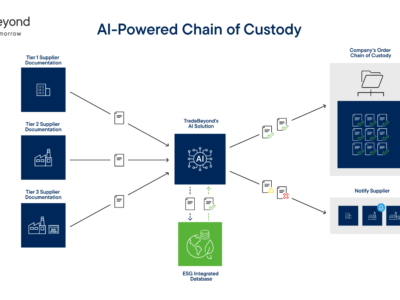By Otori Emmanuel
According to a report published by World Bank, it was observed that while Small and Medium Enterprises (SMEs) create 7 out of 10 jobs in emerging markets, access to finance has remained a key constraint to SME growth. The Report noted that access to finance is one of the most cited obstacles facing SMEs to grow their businesses in emerging markets and developing countries.
RELATED Impact Of Covid-19 On Startups And Adopting The Lessons For Sustainability
While access to funding is a challenge for most SMEs across the world and especially in Nigeria, ability to create jobs to support the ongoing efforts of the Federal Government of Nigeria has become a significant priority as several financial interventions such as the Anchors Borrowers Programme, TraderMoni, Survival fund, AGSMEIS initiative, the creative industry fund etc. seeks to drive economic development by directly impacting SMEs in order to create jobs.
A question of whether the interventions provided has been properly utilized has also been a major concern to the Central Bank of Nigeria as there has been a high level of defaulting in the ability of these SMEs to make repayment for the loans as well as a discovery of misappropriation of funds.
The challenges SMEs face is hinged on different factors and access to finance is one of them, however without fixing some other challenges that are cardinal to the success of a business, access to funding would make no difference in the operations of such businesses.
Some of the key factors that hinder the growth of SMEs aside access to finance are:
- Lack of Good Financial Records
One of the reasons for the failure of SMEs is lack of keeping proper financial records. Inability to understand whether a business is making profit or running at a loss is an assumption that owners of SMEs indulge in, thinking that as far as there is cash-flow, the business can survive. While cash-flow ensures that a business keeps running, survival does not in any way equate growth as growth comes from the profitability in order to expand, offer additional line of product or services or hire extra team members.
Keeping of financing records does not have to be rigorous. It simply has to be what forms the cost of running the business (expenditure) and what are the sources of revenue (income). Income has to be higher than expenditure in order to be profitable in business while still serving the client with quality value.
There are several tools in place to ease the keeping of good financial records e.g. Quickbooks and Sage 50. These tools can help even managers without accounting background to track their finances.
- Lack of Standard Operating Procedures (SOP)
Due to the lack of jobs for the teeming population, entrepreneurship becomes the best of chance for most recent graduates and those in the informal sector, therefore leading to the emergence of accidental entrepreneurs. These set of entrepreneurs lack the basic skills to compete globally with their counterparts as there are many gaps such as lack of adequate training to establish and manage a business. Standard Operating Procedures are set of instructions that help to create structure on how a business is operated by the team, this helps to create cohesion and organization in the day to day activities of the business. SMEs usually run on impulse either due to ignorance or inability to hire an expert to create an SOP, leading to haphazardly running the organization in a fire-brigade approach, making deadlines almost impossible to reach and satisfying customers becomes a mirage.
- Inability To Leveraging on Social Capital
Social capital refers to the ability to leverage on key relationships with different stakeholders that are pivotal in running a business. This form of capital applies to the supplier of the raw materials required for production, to support the receipt of input at a reasonable price or provision of the materials on credit. Relationship with family, friends, associates and belonging to circles of social clubs can be the beginning of securing customers whose patronage would help secure capital for takeoff.
- Inability To Create Visibility Online
Creating social media handles on Face, Twitter, Instagram, LinkedIn and other channels as well as having a website are necessary for a business to become visible to its target market. SMEs are limited in customer acquisition as their dependence is only on customers that can access their physical location. Being able to become visibility to markets outside the environment of operation will serve as a very competitive edge and also ensure they gain immense visibility online therefore increasing their overall efforts in acquiring customers and continuous cash-flow.
When these factors are properly tailored to support the growth of a business, having access to capital might not necessarily be a major challenge as reported by SMEs as a buffer of opportunity to benefit from the market has already been created as a result of putting the following constants in place.
Please visit my LinkedIn profile here – https://www.linkedin.com/in/emmanuelotori/































